|
Pronouns
Pronouns are words that substitute a noun. We can use a pronoun instead of a noun.
We use pronouns to communicate more quickly and to avoid being too repetitive.
Do you like the boss? I don't like the boss. The boss is very mean.
Using pronouns, we can say:
Do you like the boss? I don't like her. She is very mean.
There are many types of pronouns that we will study throughout the course. Here you have a list so they will be familiar to you in the future:
- Personal Pronouns: I, you, he, she, it, we, you, they.
- Possessive Pronouns: mine, yours, his, hers, its, ours, yours, theirs.
- Demonstrative Pronouns:
this, that, these, those
- Interrogative Pronouns:
who, what, which, when, how, where.
- Object Pronouns: me, you, him, her, it, us, you, them.
- Reflexive Pronouns: myself, yourself, himself...
- Reciprocal Pronouns: each other, one another.
- Indefinite Pronouns: another, much, nobody, few, such...
- Relative Pronouns:
who, whom, which...
|









